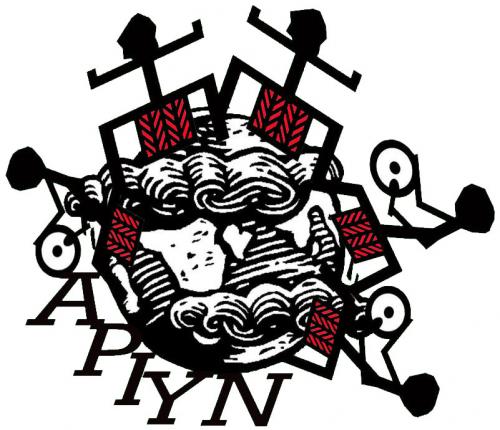12th Session of the United Nations Permanent Forum on Indigenous Issues (UNPFII)
Agenda Item 3 (b): Education
Presented by: Julius CeasarDaguitan
Asia Pacific Indigenous Youth Network (APIYN)
Ennak man kablaawan(I extend my greetings)
Kakabsat Nainsigudan (Indigenous Brothers, Sisters and everyone)
Tumaktakder mangilablaban(Standing and Fighting)
Iti entay Karbengan (for our rights)
Dear Mr. Chairman, Experts of the UNPFII and fellow indigenous brothers and sisters:
I am Julius CeasarDaguitan, an Igorot, indigenous from Sagada, Mountain Province in the Cordillera, Philippines.
In behalf of the Asia Pacific Indigenous Youth Network (APIYN), a network of various indigenous youth organizations and individuals in the Asia-Pacific region, I am grateful to present to you the position of APIYN on the agenda item 3 (b) on Education. This is a result of the recently and successfully concluded Weaving Perspectives: Converging the Indigenous Youth Initiatives and Capacities in Advancing the Rights of Indigenous Peoples” held from April 18 – 25, 2013, in Baguio City, Philippines organized by the APIYN and Land is Life. In the spirit of solidarity, brothers and sisters from Latin America and Africa also joined in this significant event.
We appreciate that the 12th Session of the Permanent Forum is prioritizing in its agenda, issues that directly concerns the indigenous youth such as education.
As embodied in the Universal Declaration on Human Rights Article 26, Education is an essential right of each and every one. This was further reinforced by the UNESCO’s Education for All (EFA). But the goal of Education for All is a long way for the Indigenous Peoples especially for Indigenous Children and youth, due to the colonial and commercialized character of education in most states.
In most countries in Asia, the curriculum in the schools does not recognize and even misrepresent the glorious history of Indigenous Peoples leaders and their contributions to their communities. The mainstream education curriculum does not include the unique indigenous tradition and culture, the highly adaptive cultural practices, sustainable and cordial relationship with nature and Mother Earth which may have induced a sense of pride and confidence among the indigenous youth.
We appreciate the Philippine’s inclusion of IP education in the curriculum of some schools and the other countries such as Indonesia, New Zealand, and Malaysia for implementing a mother tongue based education. But we also condemn the lack of guidelines, modules and technical and financial support in its implementation.
Furthermore, Education is being treated as a business and not a service by the states to its constituents. There is increasing number of private schools and decreasing numbers of public schools due to privatization and lack of support from the government. In most countries in Asia, Higher education is expensive and not affordable to most. In the Philippines there is continuous Budget cut on Education resulting to the increase of tuition and other fees. In Nepal, Bangladesh and Philippines, educational institutions are located very far from the IP villages. Children and youth have to walk for hours just to reach their school.
We are also deeply concern on the continuing Militarization of IP communities, wherein the community and the schools are being used as military barracks/camps disrupting the livelihood of the people, the academic schedule of the schools and hampering the performance of Indigenous Children and youth.
Another concern is the continuous vilification and red tagging of indigenous peoples’ leaders, indigenous youth and student leaders, and youth organizations that are critical to these issues and concerns.
The Indigenous youth therefore recommend the following:
1. For the states to stop budget cut and privatization of educational institutions and to increase the budget allotted for education and allocate 6% of their GDP to Education as stated in the Dhaka Declaration.
2. For states to promote a pro-indigenous peoples education. And support programs such as IP education and mother tongue based education by providing necessary guidelines, modules, financial and technical support.
3. The states must employ Indigenous Peoples who are not only knowledgeable on indigenous culture but who will also uphold their peoples and communities’ interests and welfare in government schools. They should also be included in the formulation of the education curriculum and module.
4. We call for the immediate de militarization of Indigenous Peoples communities and to end the vilification and red tagging of our leaders and organizations.
5. For the Permanent Forum and other UN bodies to help the indigenous youth forward these concerns and recommendations to the states.
As our part, we commit to strengthen and broaden the indigenous youth movement by establishing an international youth network in the near future, as an avenue for us to educate and empower ourselves and elevate our issues and concerns such as education
Napateg ti edukasyon(Education is Important)
Ti nainsigudan ken nasyon(For Indigenous People and Nations)
Masapul entay ilaban(We must for qualityand accessible education)
Para panagdur-as ti Pagilyan(for the development of society and nations)
AgyamanakUnay.Agbiag (Thank you very much. Long Live)
Help us spread the news! Download the document HERE and share it to our fellow indigenous youth!



